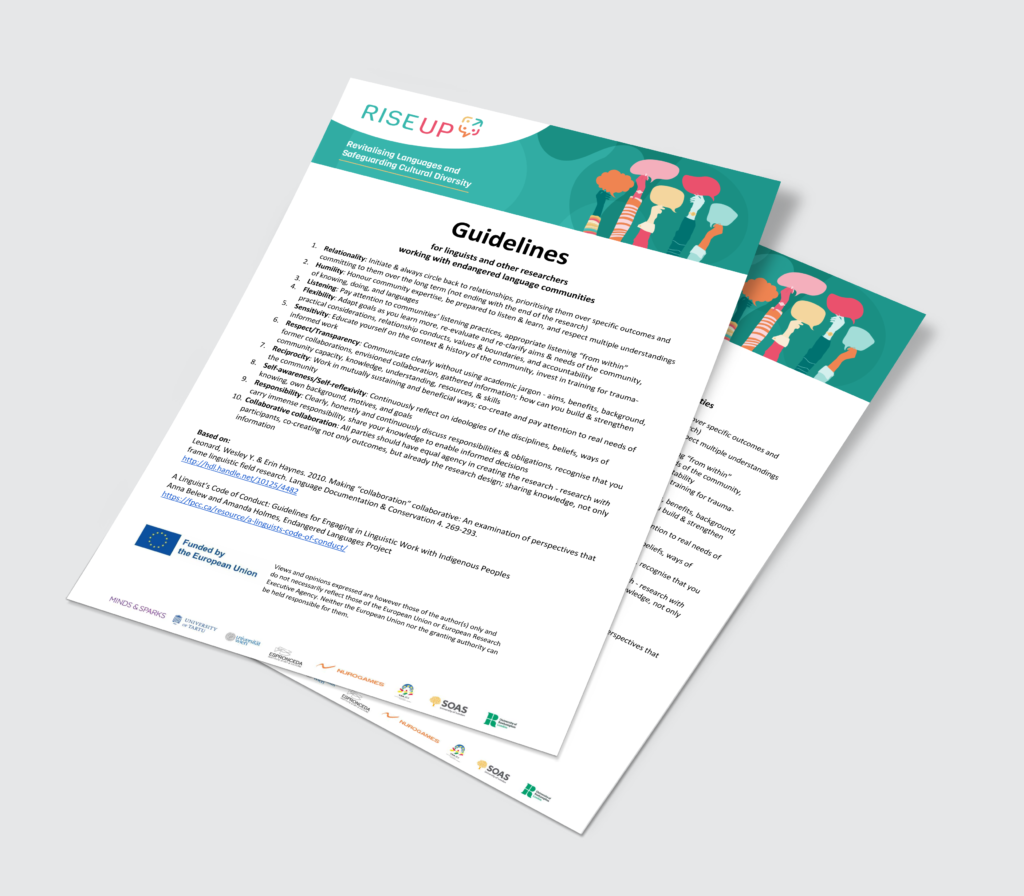Guidelines
for linguists and other researchers working with minoritised language communities
1. Relationality: Initiate & always circle back to relationships, prioritising them over specific outcomes and committing to them over the long term (not ending with the end of the research)
2. Humility: Honour community expertise, be prepared to listen & learn, and respect multiple understandings of knowing, doing, and languages
3. Listening: Pay attention to communities’ listening practices, appropriate listening “from within”
4. Flexibility: Adapt goals as you learn more, re-evaluate and re-clarify aims & needs of the community, practical considerations, relationship conducts, values & boundaries, and accountability
5. Sensitivity: Educate yourself on the context & history of the community, invest in training for trauma-informed work
6. Respect/Transparency: Communicate clearly without using academic jargon – aims, benefits, background, former collaborations, envisioned collaboration, gathered information; how can you build & strengthen community capacity, knowledge, understanding, resources, & skills
7. Reciprocity: Work in mutually sustaining and beneficial ways; co-create and pay attention to real needs of the community
8. Self-awareness/Self-reflexivity: Continuously reflect on ideologies of the disciplines, beliefs, ways of knowing, own background, motives, and goals
9. Responsibility: Clearly, honestly and continuously discuss responsibilities & obligations, recognise that you carry immense responsibility, share your knowledge to enable informed decisions
10. Collaborative collaboration: All parties should have equal agency in creating the research – research with participants, co-creating not only outcomes, but already the research design; sharing knowledge, not only information
Based on:
Leonard, Wesley Y. & Erin Haynes. 2010. Making “collaboration” collaborative: An examination of perspectives that frame linguistic field research. Language Documentation & Conservation 4. 269-293. http://hdl.handle.net/10125/4482
A Linguist’s Code of Conduct: Guidelines for Engaging in Linguistic Work with Indigenous Peoples. Anna Belew and Amanda Holmes, Endangered Languages Project https://fpcc.ca/resource/a-linguists-code-of-conduct/
